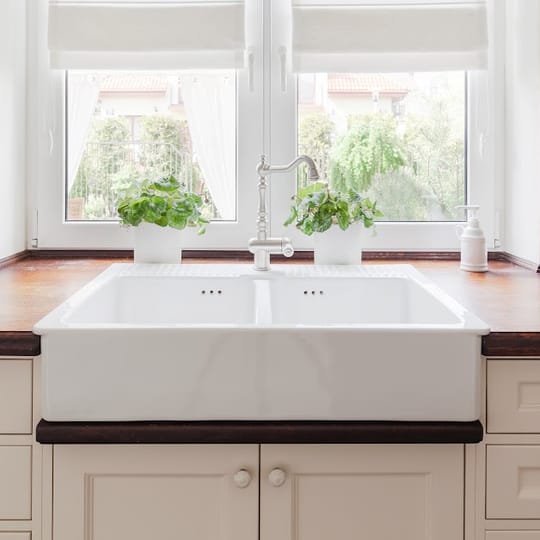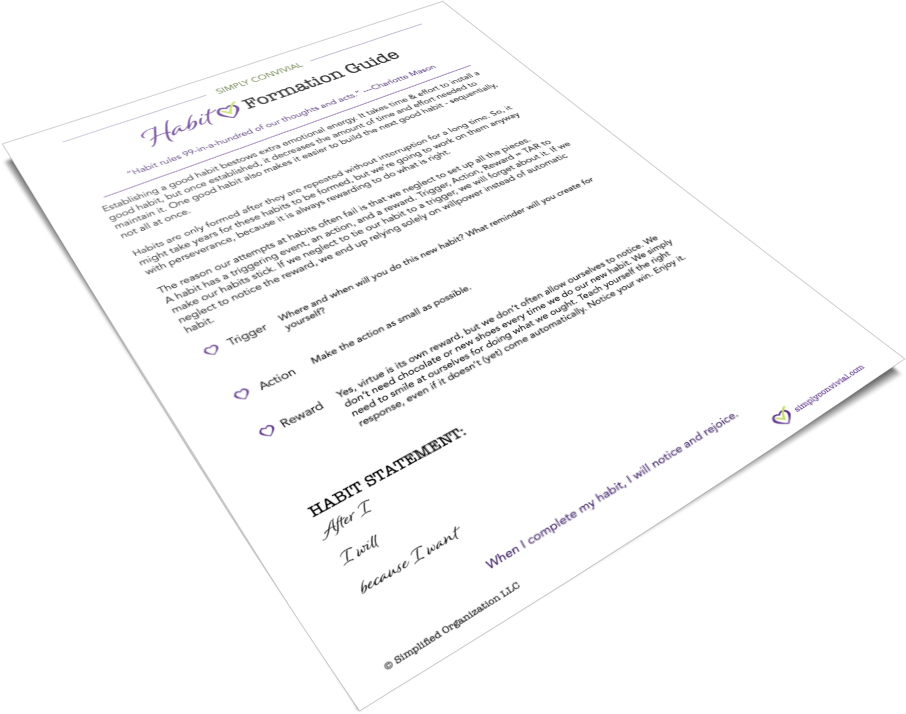
Habits of a Homemaker: Build Joyful and Productive Routines
Or, homemaking habits to turn the table on overwhelm
Being happy as a homemaker is more about habits than anything else. The habits that shape both our actions and thought patterns determine whether we find satisfaction and joy in our work at home. By developing intentional habits, we can transform our homemaking experience from overwhelming to fulfilling.
Let’s explore the key habits of a successful homemaker and how they can bring more peace and purpose to your daily life.
5 Habits of a Christian Homemaker
Life at home is full of demands—meals to cook, kids to care for, and responsibilities to juggle. These five habits will help you stay grounded and effective as you manage your home with grace and purpose.
Habit 1: Write It Down Right Away
Our brains aren’t designed to store and organize everything. Writing down tasks, events, and ideas frees up mental space for problem-solving and creativity. Start a habit of keeping a notebook or planner nearby to capture everything from to-do lists to grocery items. When it’s written down, you’re less likely to forget it, and you’ll feel more in control.
Habit 2: Center Your Thoughts
Overwhelmed by swirling thoughts? Re-center your mind by anchoring it to truth. Write a meaningful verse, motto, or quote on a sticky note and place it where you’ll see it throughout the day. These small reminders help shift your mindset and keep you focused on what truly matters.
Habit 3: Limit Your Daily To-Do List to 3 Items
A never-ending to-do list can leave you feeling defeated. Instead, create a daily list with just three priority tasks. This doesn’t mean you’ll only accomplish three things, but it ensures that the most important items are tackled first. Celebrate your progress when those three tasks are completed, and let the rest of the list wait for another day.
Habit 4: Take 10 Minutes to EHAP Daily
EHAP stands for "Everything Has a Place." This quick tidying routine helps keep chaos at bay. Set a timer for 10 minutes and focus on putting things back where they belong. Involve your family, too. Small, consistent efforts prevent clutter from taking over.
Habit 5: Smile More Often
Your demeanor sets the tone for your home. A simple smile goes a long way in building a warm, loving atmosphere. Take a moment to pause and smile at your children and spouse—it’s a small habit that fosters connection and joy.

Common Homemaking Habit Mistakes
Even with the best intentions, it’s easy to fall into traps that derail your progress. Avoid these three common mistakes to build habits that stick.
Mistake 1: Starting in Hard Mode
Don’t aim for perfection from the start. Instead of attempting a complete habit overhaul, focus on one small change at a time. Incremental improvements are more sustainable and lead to long-term success.
Mistake 2: Neglecting to Track and Review
Without tracking your habits, it’s easy to lose momentum. Use a simple tracker to monitor your progress and reflect on what’s working. Regular reviews help you make adjustments and stay consistent.
Mistake 3: Focusing on Extrinsic Rewards
Habits stick best when they’re tied to intrinsic rewards. Rather than treating yourself with a cookie for completing a task, recognize the deeper value of your work. Remind yourself why it matters, and let that motivate you.
Habits of Self-Care and Sabbath
Homemakers often overlook the importance of self-care and rest. These habits ensure you’re replenished and ready to serve your family with joy.
Habits of Real Self-Care
True self-care isn’t about indulgence but stewardship. Taking care of your health and hygiene honors God and equips you to fulfill your role. Show up for your day showered, dressed, and ready to give your best. This habit communicates respect for your work and the people you serve.
The Habit of Sabbath
Sabbath rest isn’t about indulgence; it’s about prioritizing worship and fellowship. Make Sundays a day to step away from efficiency mode and focus on faith and community. This intentional pause recalibrates your heart and mind for the week ahead.
10 One-Minute Habits Every Homemaker Needs
Sometimes, the simplest habits make the biggest difference. Try these quick, one-minute habits to streamline your day:
- Make your bed—it’s a quick win.
- Drink a glass of water first thing in the morning.
- Glance at your calendar to set your focus.
- Set out your Bible and notebook the night before.
- Tidy up one small area (e.g., your kitchen island).
- Write a short daily card with your priorities.
- Smile at your kids or spouse.
- Put your phone in another room for focus time.
- Wipe down a surface for an instant refresh.
- Take one item with you whenever you leave a room.
Build Habits That Last
Developing the habits of a homemaker takes time, but the rewards are worth it. By starting small and focusing on what truly matters, you can create a home environment that’s not only orderly but also joyful and life-giving. Choose one habit to start today, and see how it transforms your homemaking journey.

Every habit has 3 essential ingredients.
Make and track habits that stick with this free worksheet.



